Where does foreign policy go after Calmy-Rey?
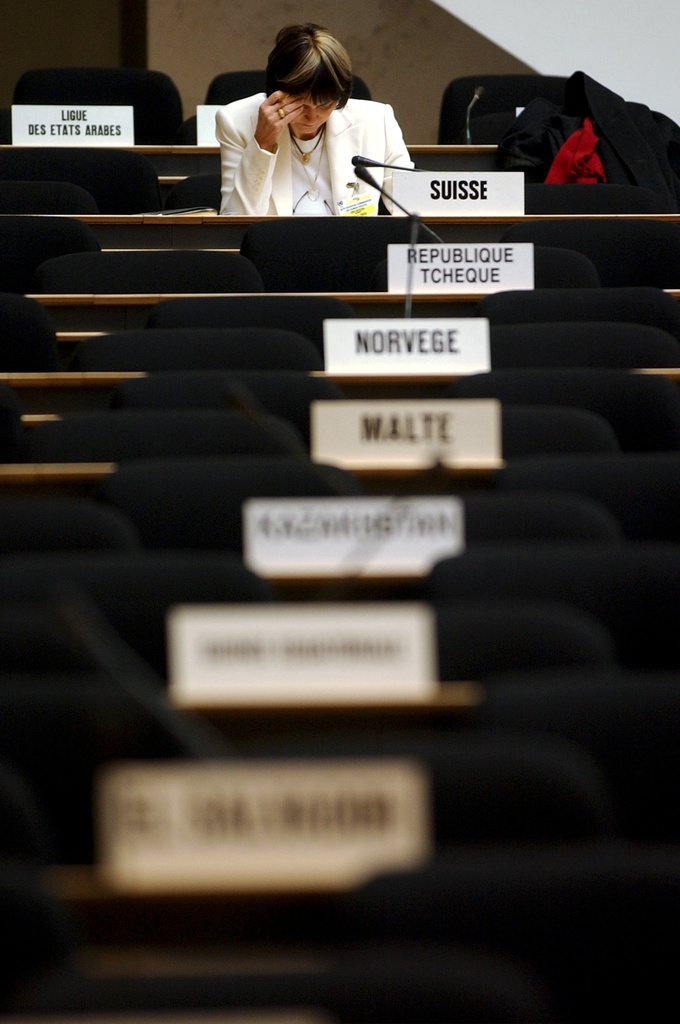
The European Union, the United Nations, neutrality – these are just some of the challenges facing the successor to outgoing Foreign Minister Micheline Calmy-Rey.
It’s a job that is made all the more difficult by the fact that the parties in government cannot agree on Swiss foreign policy aims.
“State interdependency is becoming increasingly strong. Many decisions are adopted at international summits, such as the G20,” said Calmy-Rey earlier this month when she announced her resignation for December.
“But we are faced with global risks such as terrorism, migration and climate change, all of which progressively influence our policy, with the border between internal and foreign policies increasingly crumbling,” said the minister, who also holds the rotating presidency this year.
The major parties in Switzerland’s multi-party government have, however, not been able to agree on key foreign policy issues. The population has, in the past 20 years, voted on more foreign policy topics than they did in the whole century beforehand.
Regarding relations with the EU alone there have been eight national votes since 1992.
Active neutrality
Above all there is no consensus on how Switzerland should position itself in the post-Cold War era, in which Swiss neutrality has lost importance and no longer serves as the main reason for the country’s traditional role of mediator.
During her nine-year tenure at the foreign ministry, Calmy-Rey has tried to strengthen the Swiss presence internationally through a policy of “active neutrality”. This has included the launching of several initiatives giving Switzerland a mediatory role in regional conflicts and making it a recognised voice in human rights.
“I am convinced that shutting ourselves off and building walls around ourselves is not in Switzerland’s best interests,” the minister has said.
“Instead we should cultivate more our network of relations and strengthen our international influence if we want to preserve national wellbeing, security and sovereignty.”
Criticism
But her initiatives have come in for sharp criticism, particularly from the rightwing Swiss People’s Party, which is against any form of active neutrality.
“Neutrality means not meddling, and keeping quiet and to oneself. This is the only way to serve the interests of Switzerland and conflict parties seeking a mediator to lead a dialogue calmly and discreetly,” said the party’s Ulrich Schlüer.
Schlüer does not stop there. “Micheline Calmy-Rey’s appearances on the international scene have allowed her to boost her media profile spectacularly and to satisfy her ego,” he said.
“But they didn’t achieve anything, just look at when she crossed the demarcation line between the two Koreas. Or they have even damaged Switzerland, such as when she wore the veil in Tehran, which irritated the United States and Israel.”
Schlüer wants a new direction. “We need a foreign minister who can restore the old values of a neutrality founded on caution and reserve.”
Dynamism and competence
Those on the left – including Calmy-Rey’s own party, the centre-left Social Democrats – are much more positive.
“In an increasingly globalised world, Switzerland must show dynamism and specific competence in its strong points: human rights, the extension of public international law and mediation. Intervening in these areas is sometimes risky but it’s the only way we can exist on a world diplomatic level,” said the party’s Carlo Sommaruga.
It’s an opinion shared for the most part by the centre-right parties, even if they have some reservations about the foreign minister’s work.
“Neutrality should certainly not be confused with passivity: Switzerland should also in future have an active foreign policy to defend human rights and promote peace,” said Christa Markwalder of the Radical party.
“In this sense, Micheline Calmy-Rey has certainly managed to make Swiss foreign policy more visible. But many of her initiatives have not achieved the expected success and, above all, she has not always demonstrated the best attitude in relations with the EU, in a very difficult phase of negotiations.”
Recognition and progress
Non-governmental organisations working in human rights and peace promotion are also generally positive.
“Swiss diplomacy in several peace processes, such as in the Middle East, Africa and the Caucasus, has not always had results in the short term. But it does allow ties to be established with regional partners and great powers and has therefore given Switzerland a certain recognition and importance in the medium and long term,” observed Laurent Goetschel, director of the Swisspeace foundation.
Manon Schick, head of the Swiss branch of Amnesty International, says that Swiss foreign policy has shown progress in recent years, especially in boosting the instruments for the application of human rights at UN organisations.
“Switzerland especially fought for the creation of a Human Rights Council in Geneva, in which it now plays a leadership role in fighting, for example, for gay rights and against the death penalty,” Schick said.
Micheline Calmy-Rey became foreign minister in 2003. In 2007 and 2011 she held the annually rotating Swiss presidency.
On September 7 she announced her resignation for the end of the year.
Her successor will be elected on December 14 during the cabinet election.
Micheline Calmy-Rey has been on the winning side of all referendum votes on foreign policy held during the nine years she has been minister of foreign affairs:
June 5, 2005: the people approve with a 54.6% majority a proposal that Switzerland sign up to the Schengen/Dublin accords.
September 25, 2005: 56% of voters say yes to the extension of the agreement on the free movement of people to the ten new member states of the European Union.
November 26, 2006: a contribution of SFr1 billion, intended to foster development and democratisation of eastern European states, is approved by 53.4% of voters.
February 8, 2009: 59.6% of citizens are in favour of the extension of the agreement on the free movement of people to Bulgaria and Romania.
May 17, 2009: the introduction of the biometric passport, in keeping with the standards required by the Schengen agreement, is supported by 50.1% of voters.
(Translated from Italian by Isobel Leybold-Johnson)

In compliance with the JTI standards
More: SWI swissinfo.ch certified by the Journalism Trust Initiative

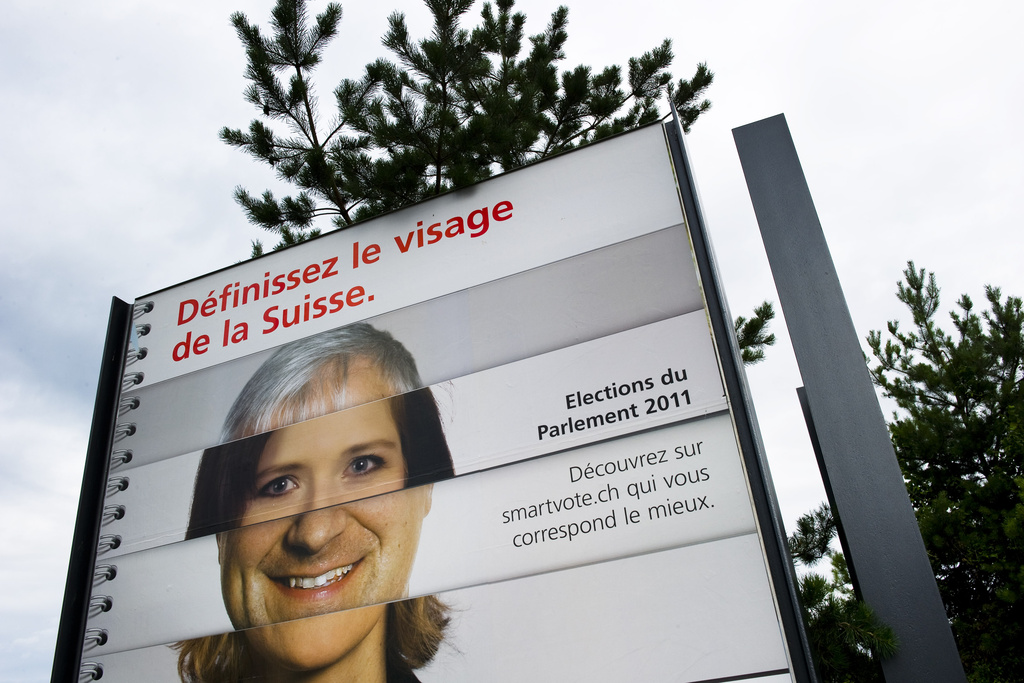
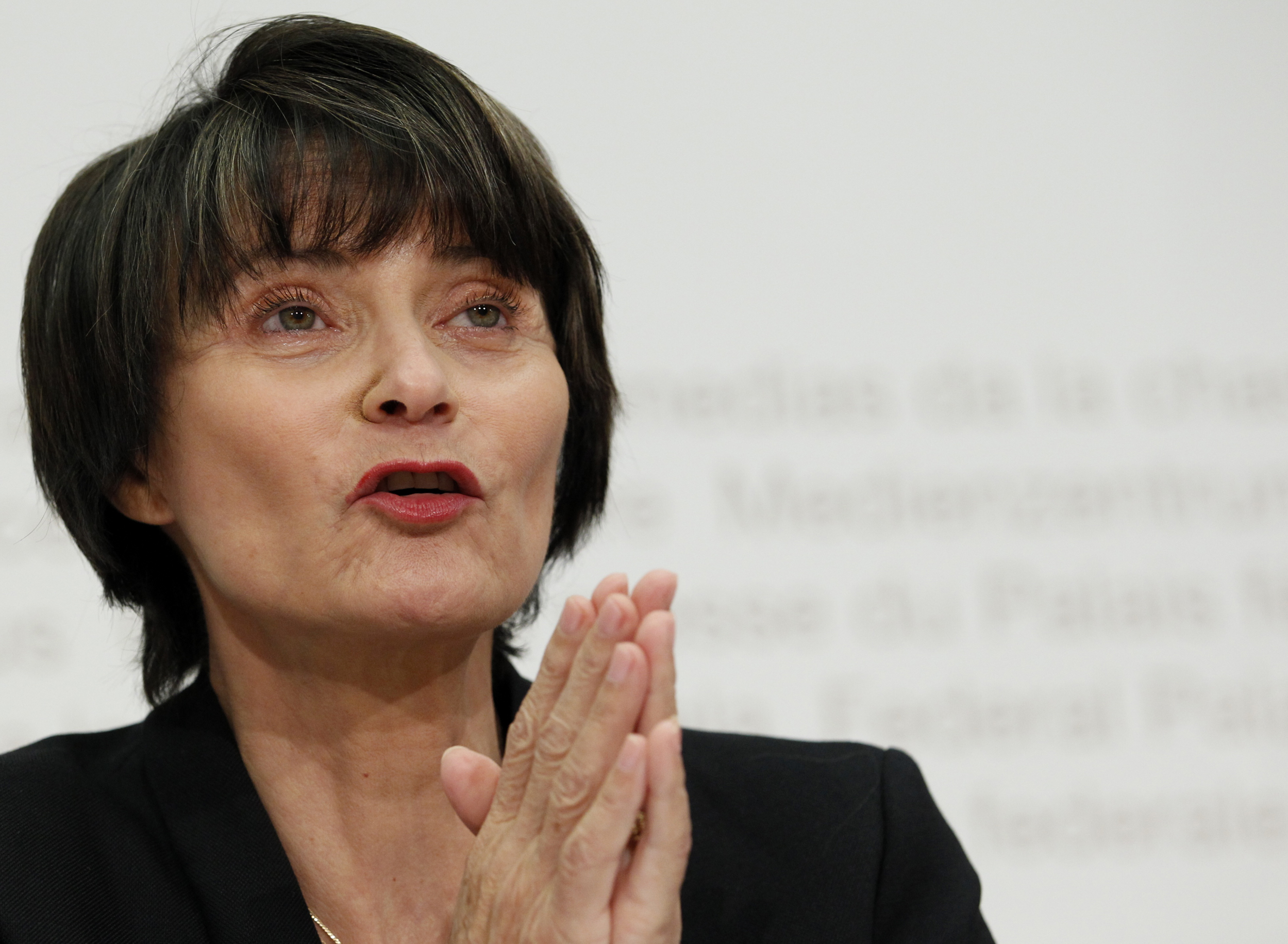
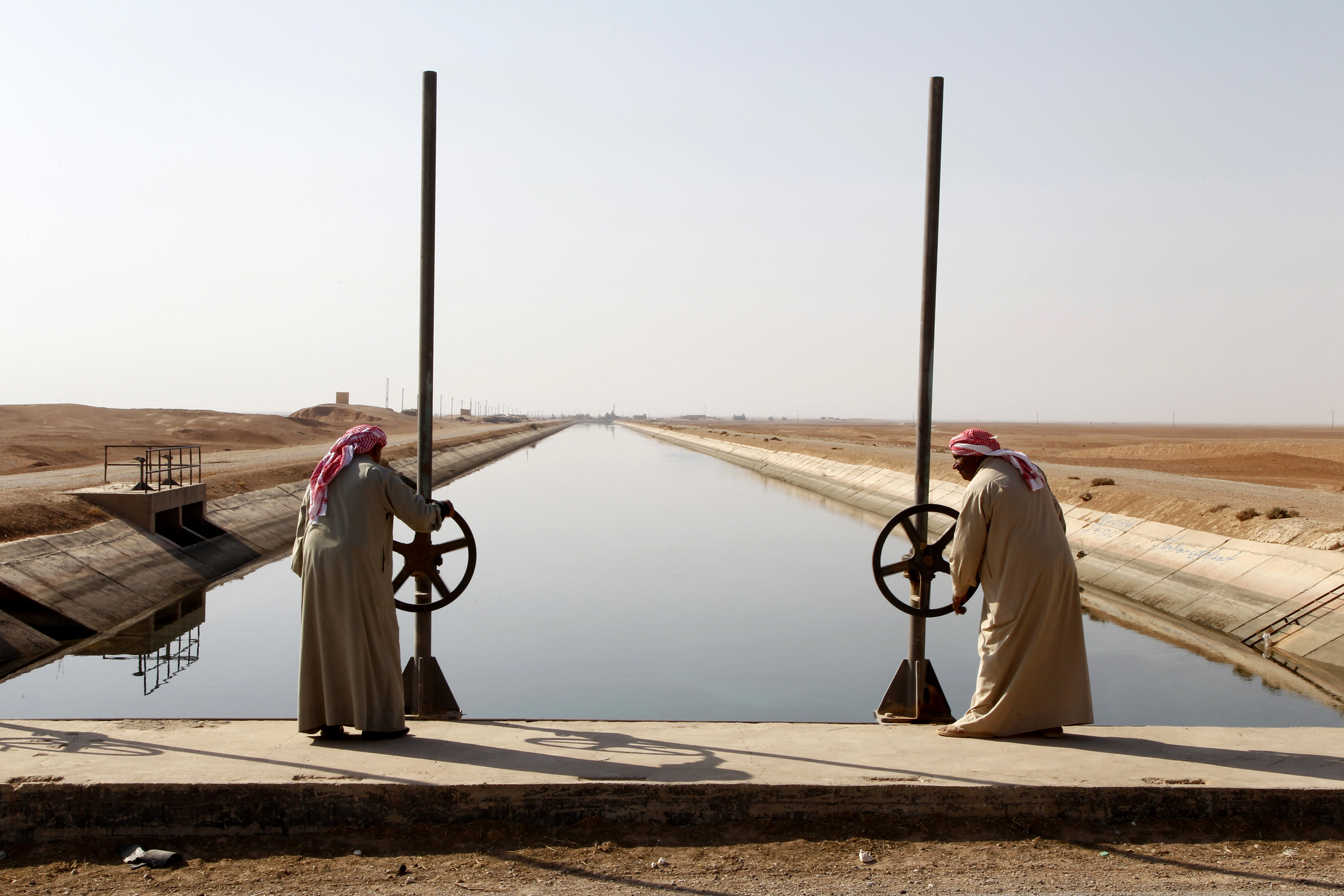
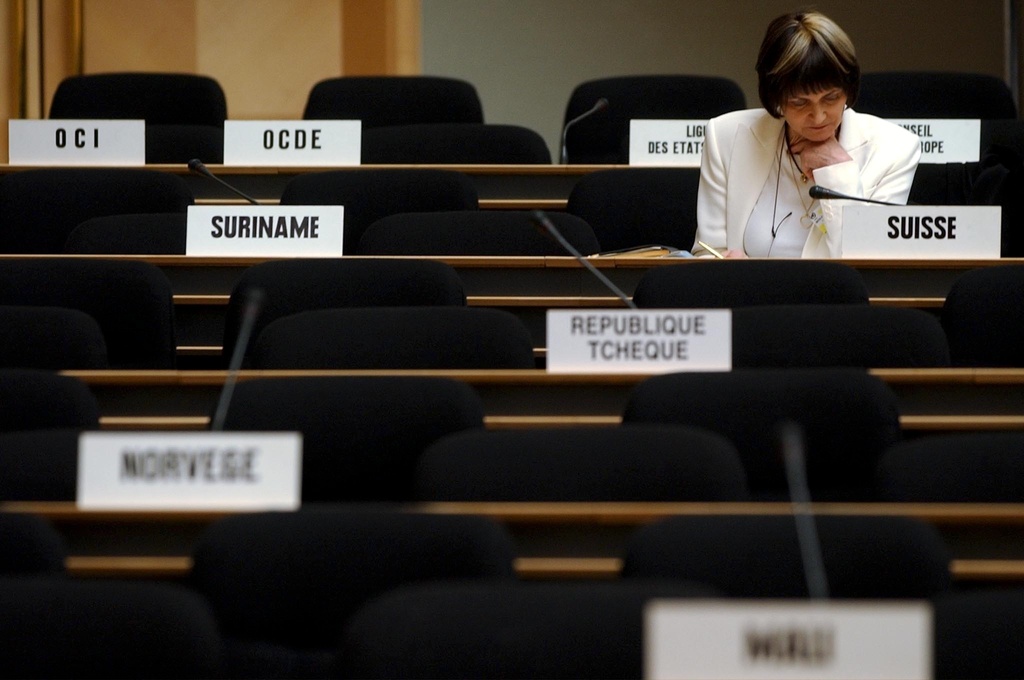
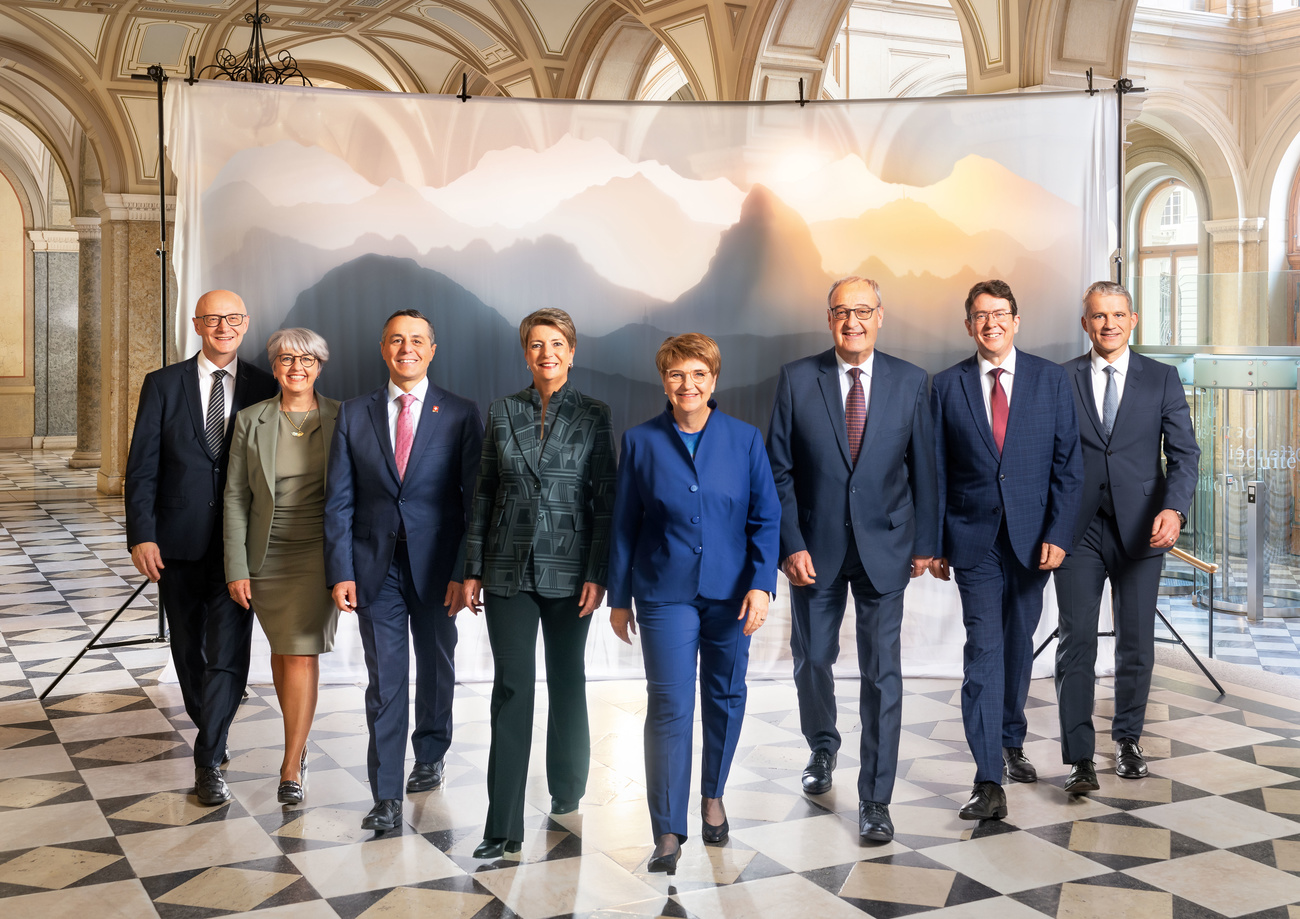
You can find an overview of ongoing debates with our journalists here. Please join us!
If you want to start a conversation about a topic raised in this article or want to report factual errors, email us at english@swissinfo.ch.